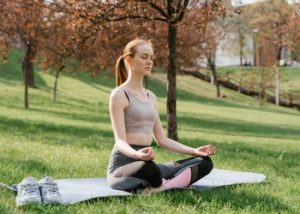Anxiety levels are extreme among Gen Z, including millennial populations in communities all around the world. As per the 2020 Deloitte Millennials Report, almost half of Gen Zs and Millennials say they’re depressed all or much of the time. The report, which was published in late December, pegs the numbers at 48% of Generation Z and 44% of Millenials reporting some sort of mental anxiety. Financial problems, family health, and job aspirations are ingrained in the factors of extreme stress. Surprisingly, the Covid-19 pandemic does not feature at the top of the list, but it certainly has impacted the lot.
Financial Anxiety at Forefront
 Finances continue to represent the bulk of the tension factor. Most of the Millennials (around 67%) and Gen Zs (around 64%) claim that they frequently stress regarding their financial condition. Indeed, the follow-up poll showed a decrease in both the generations of those who expect that their individual economic outlook will change during the next year. The overall economic instability has resulted in massive job losses across major sectors globally. To add to the woes, the insecurity of the future, coupled with the rising cost of medical bills during the pandemic, has further aggravated the situation.
Finances continue to represent the bulk of the tension factor. Most of the Millennials (around 67%) and Gen Zs (around 64%) claim that they frequently stress regarding their financial condition. Indeed, the follow-up poll showed a decrease in both the generations of those who expect that their individual economic outlook will change during the next year. The overall economic instability has resulted in massive job losses across major sectors globally. To add to the woes, the insecurity of the future, coupled with the rising cost of medical bills during the pandemic, has further aggravated the situation.
Common Signs of Anxiety
While the symptoms of anxiety are often lost in semantics, the bottom line remains the same. It is easy to confuse symptoms of anxiety as mere signs of non-involvement or being an introvert. Let us look at some common signs which may imply anxiety.
• A loss of confidence or enthusiasm for the execution of regular tasks
• Sentiments of neglect and follow-through problems
• The inability to fulfill job criteria
• A sense of weakness
• Holding people at a distance
• A feeling of exhaustion or burn out
• Complete lack of involvement and motivation
What Leads To Anxiety?
 Lifestyle plays an important part in aggravating anxiety. A healthy lifestyle goes a long way to mitigate the effects of anxiety. However, with COVID work and life balance going haywire, the result is a rise in overall levels of anxiety. Some of the common lifestyle issues that promote anxiety include:
Lifestyle plays an important part in aggravating anxiety. A healthy lifestyle goes a long way to mitigate the effects of anxiety. However, with COVID work and life balance going haywire, the result is a rise in overall levels of anxiety. Some of the common lifestyle issues that promote anxiety include:
• Irregular Sleeping Patterns – Bad sleep is probably the most common cause of anxiety. Research by the University of California at Berkeley showed that “sleep deprivation can play an important role in cranking up the mental regions that correspond to unhealthy worry”. Typical causes of inadequate sleep include going to sleep at varying hours, not prioritizing sleep, and wasting time prior to bedtime on phones or computers.
• Irregular Food Intake Timing – Irregular food habits are another important factor contributing to anxiety among millennials. This is a direct correlation to the earlier factor of irregular sleeping. Due to odd hours of working and lack of proper sleep regimen, the food regimen suffers. This results in millennials skipping crucial meals such as breakfast and lunch. This adversely impacts the overall well-being. Food is a biological need of the body, the lack of which aggravates symptoms of anxiety. Dehydration and hunger are major catalysts of anxiety.
• Too Much Coffee Dependency – Coffee consumption makes us much more responsive and allows us to do well on short-term projects, in many ways. Although, especially if somebody is already prone to anxiety, it could also make a person nervous, grumpy and anxious. In particular, in individuals with anxiety attacks and social anxiety, exposure to caffeine is enhanced, and caffeine may induce panic attacks in certain individuals. Caffeine also is a diuretic, which may induce dehydration—an anxiety catalyst described above.
•  Our Smartphones – Baylor University’s 2014 report showed that American kids spent an average of 9 hours on their smartphones each day. New tech, of course, greatly changes our lives in many ways. Very much of it renders us anxious, however. Amusement based on the computer stimulates arousal of the central nervous system, which can intensify anxiety. Poor moods and dissatisfaction are similarly correlated with social media.
Our Smartphones – Baylor University’s 2014 report showed that American kids spent an average of 9 hours on their smartphones each day. New tech, of course, greatly changes our lives in many ways. Very much of it renders us anxious, however. Amusement based on the computer stimulates arousal of the central nervous system, which can intensify anxiety. Poor moods and dissatisfaction are similarly correlated with social media.
Addressing Anxiety In Modern Times
As we study the indicators and effects of anxiety, it is easy to understand that most of the contributors are self-inflicted. However, it is not to say that external factors do not aggravate anxiety. But the internal and lifestyle choices are factors that are under individual control.
Some simple steps that can go a long way in addressing the issue of anxiety would be to maintain a healthy lifestyle.
• Exercise – Daily exercise helps release endorphins in our brain, along with dopamine. These are pleasure hormones, which, in return, help us maintain a good mood.
• Proper Diet/Sleep – This is another no-brainer. Maintaining regular dietary and sleep patterns goes a long way to ensure overall good health.
• Professional Counseling – For the extreme situations where it is not possible for the individual to make efforts on their own, professional help is recommended. It is imperative to realize that anxiety is completely treatable. So even the most extreme cases of anxiety can be mitigated with the help of professional counseling and psychotherapy.


